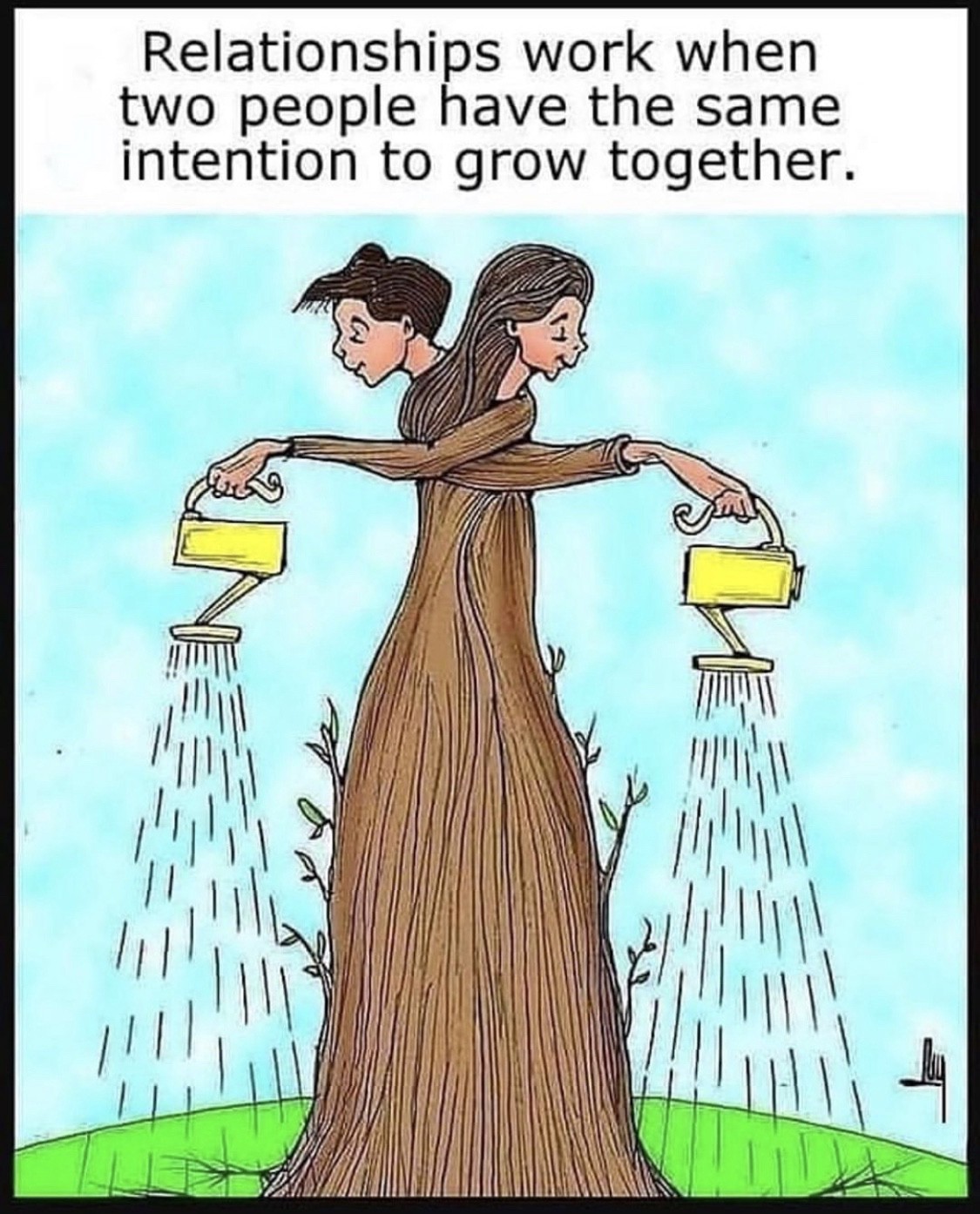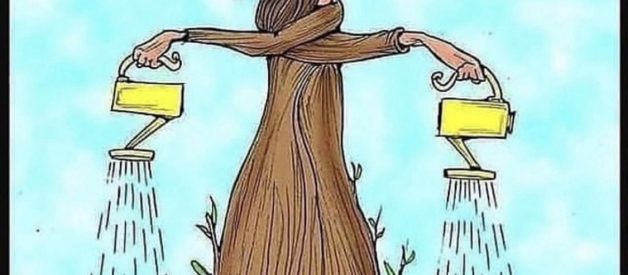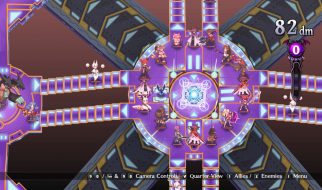Being in a relationship means so much more than feeling the connection of a relationship. That?s because connection is something you maintain and work on every day while being in a relationship is the result of that work and not a given.

After years of not being able to have to secure an emotional, I finally understood how the mechanics of love work beyond the ?get the guy? stage. So in the last 7 or 8 years of dating and not having a longer than 5 months relationship I?ve learned a lot, not just about myself but also about relationships and the psychology of it. The last year just before reaching my 30?s the limits of wanting to ?get back out there? and date again after yet another failure was reached with a big depressive episode. And that triggered me to read. A lot! I basically read everything there is on dating and psychology from over 100 books. It was a titanic and desperate effort to avoid pain and to rewrite the story I was telling myself about dating.
So here?s what I found out?
There are 2 types of relationships according to the stage of your life. For the purpose of simplification, I will box them by age period, but honestly, age has nothing to do with this. Is simply of matter of dating and life experiences.
- The relationships where you learn about what you want
This is the phase where you usually explore and find out what you like and what you don?t and it usually happens from the beginning of your teen years until sometimes late 20?s. At this age, you don?t have yet enough experiences to have a strong defence mechanism against breakups and you?re pretty much living with the wiring of your childhood traumas. You bring up a lot of problems that are unsolved from your childhood but you are both very flexible and if you have enough boxes ticked from the ?features? you think you need from each other for a short term bases, you will get to solve some of that stuff out and maybe resist the challenge of time.
For me, the 2 important long term relationships of this stage were from 15 to 18 and from 18 to 22. With the first, I broke up because despite having a lot of love for each other, I felt there was not a match on the long term because we had different objectives for our careers and what we wanted to do in life. But the truth is that this was the story I told myself in order to leave a wonderful man with which I could have grown up with to start opening up and discuss my fears and vulnerabilities. But I was too young to know that there is anything beyond the matching on paper stage. The second relationship was also very loving but I found out more in-depth that even when I think we have a match on the career prospects and wants in life, we still need something else in the relationship. We couldn?t be vulnerable to one another. I wanted to look very strong and decided but I failed to ask for his help and make him see his role in my life. Despite loving each other we ended up in a messy breakup that was dragged emotionally for me for another 6 years. It took a long time to heal from it because I thought it had all the ingredients I wanted in a partner and it was really hard to let go of that.
So from my experience, the biggest regrets over these relationships are the rituals and the memories you shared together. You regret a routine of having someone there meet your primary needs, and you miss having the idea of the relationship. However, the breakup will not leave you without a compass in life because the connection is not deep enough to leave that kind of wounds, even if it seems like it?s the end of the world. Believe me, it?s not!
What?s important to know here though is that pretty much everything is fact-based. You have a ?list? of requirements you think you need in a partner and you?re choosing based on that. The good part about this is that sometimes, as you get more entangled into the relationship, you might find the premises of starting to deepen that connection and start opening up emotionally and really be connected to your partner, which brings me to the next category.
2. The relationships where you learn about how to connect better to people you want
If you?ve really made sure you?re list is not really superficial and it really covers what you actually need in life from a partner, this next phase is the most beautiful one of all. Because by now you?ve accumulated enough experience to know what works for you and what doesn?t from the fact-based list. At this stage, you start to look beyond the simple fact bases. You?re looking for spirituals values of your partner, you?re looking for ethics and moral and a match at a deeper level sometimes from the very beginning. It might be that you think you can now skip the ?bullshit? and cut the chase and go straight to the deeper connection. You might spend over 10 hours together from a first date and think ?wow, this is it!? , but reality checks in with you a bit later when you wake up the next day and you?re in the wrong apartment because you failed to meet your first needs of rituals you need to know you can have with this person. Maybe he is not the cooking type and your expectation of having coffee and breakfast in the morning with him after the first night is not met. But of course, that?s a small thing you?d say. As long as we?re connected at the soul level we can go over these little inconveniences. Well, the reality is that you won?t! But if you truly have the connection you think you have, you can shape each other in time. But.. don?t expect too much change and most importantly, learn to see how much effort it will take for those changes to happen in order to know if it?s realistic or not.
One boyfriend told me that ?oh, I thought that after seeing how great I am and what I am worth it, you will start putting in the effort to lose weight?. That was not just abusive and toxic but also the wrong expectations to have after a week together. Also, wanting to be prioritized in someone?s life after a few dates are not realistic regardless of how much connection you think you have.
But let?s go back to how this stage really begins. We get to match our list, we tick the boxes and check the facts much faster. We are also maybe a bit more mature in age by now. We don?t want just a fling so we are committed to the relationship from the very beginning. We start with the benefit of the doubt, we?re all in and we begin to become more open with one another. But vulnerability is not something you rush. You have to give it time. In time you also start testing and validating if the initial assumptions of the facts list are still there. Maybe some things turn out to be invalidated by now. But if you?ve also passed that because maybe you already have some years in your past with this person ( the ones transitioning from the first stage to the second), then you can really know if the partner is ready to take the next step. Most men, for example, don?t even get here until they are ready to get married. They open up only in such an environment that offers them enough security that the woman will not end up leaving them because she?s ?trapped? and she now needs to listen to all their insecurities and heal his past wounds. The worst part about this is that men still are wired to open up only in safe long term relationships while women are more exposed to suffering on a more open environment and that makes it even harder for the 2 to really anticipate how much emotional baggage each will carry.
I?ve personally been blessed to start this stage around 29 with 2 relationships that serve me as the basis for making these observations now. The first one ended abruptly after a holiday. I was in shock and did not understand how we could love each other but not be compatible over the long run. It took me 9 months to recover and I wrote another article on this topic here explaining my journey from codependency to being independent. I learned a lot from it but I had to let go because the way our connection was formed was based on the wrong premises. It was toxic.
The second one, also the current one, is teaching me a lot more about my ability to stay in my vulnerability. My patience is challenged on a constant base, it?s not all roses and it?s for sure the most promising I ever had for seeing a future, but it takes work to keep the connection beyond compatibility and ?perfect features? and courage to open up to one another.
I will carry on with the expert’s opinion on how things evolve for this 2nd part where we know for sure we?re building the long lasting relationship.
Dating coach Matthew Hussey famously says there are 4 stages of a relationship:
- Admiration ( or respect)
- Chemistry ( or attraction)
- Commitment
- Compatibility
Now each stage has a certain way of getting our emotional needs met, but the last one is the ultimate level that really makes a relationship long lasting.
Coming back to our topic about emotional connection and relating to Matthew?s view on the stages, we might see how a relationship gets to deepen the conversations we have and the vulnerabilities we share based on how we need our partner to meet our needs.
Let?s take some examples:
- Stage 1 of admiration is usually based on the fact that you need to know the basics about someone in order to consider the ?features? compatible with your list of criteria in dating someone. This could easily be part of stage 1 explained by me earlier. It?s mostly superficial matching on paper kind of stuff.
- Stage 2 of chemistry is usually based on a common level of energy for doing things together. You get to go more into the personal vibe of a person, to understand the dynamic of the relationship but things are still really shallow at this point. You may have a great time with someone, but it doesn?t mean he/she is the one.
- Stage 3 of commitment is already about sharing a level of engagement needs together and deciding that you want to form a couple. With this stage, I say more than 90% of the couple would get stuck in. Commitment doesn?t mean that he/she will share with you their deepest desires and fears. This is the beginning of stage 2 from my explanation above.
- Stage 4 of compatibility is already the works of deeper conversations. What?s very important to know is that compatibility is not granted by facts and things we have individually that help us appreciate one another. Compatibility is built together!
Matthew uses here a metaphor of the castle to explain how a couple can learn to become compatible with one another. He explains that basically the first stages were about finding together the perfect piece of land to build a castle. You find the spot and then you start building together with the foundations. In the process, you will see both the commitments and the different views you have about how to do this process. The key element here is the team! You can?t build a castle on your own and your partner to just come and check-in with you every once in a while to see how you?re doing in providing him or her the beautiful castle. And in the works of the castle you will have fights and see different opinions of how things work for you two, but the key there is to see that conflict is the virus not the break-up reason if you can?t stay together anymore. Conflict is something we can escalate intentionally in the process of building this castle if the tasks are not assigned properly between the 2. The result of conflict is the breakup only when we feel we are not supported or understood by our partners and we feel we can?t connect anymore to share in safe space our needs, wants and fears and vulnerabilities.
The most beautiful work done by a relationship psychologist in our century is the book of Sue Johnson ? Hold me tight which deals with the hard conversations in a very scientific approach. She talks a lot about the ?demons den? or the 3 demons we fight in relationships most. And there?s also a brilliant podcast in which she talks again about the very reason why I started this article of the deeper connections we have.
My main take on this is that the key to start forming deeper connections is emotional responsiveness -tuning in to someone’s emotions. Telling our partner ?You matter!? and being ready to really listen makes a whole lot of sense when you want to go full-on.
As a summary, my top 5 tips to remember when we decide to open up and form that deeper connection are:
- Try to control your instinct to react to every challenge and simply notice that this is just a conflict, not the end of the relationship ( that?s the freeze or flee demon from Sue Johnson)
- Don?t become territorial about your investment and how much you offer compared to the other ( that?s the ?finding the bad guy? demon or the blaming game in Sue Johnson?s work)
- Make sure your intentions are coming from a valid essence of who you are not from hurt ego. You may check your intention by meditating or asking the question of ?why? do I need to say/ do that to my partner and what does it bring me and how much is this about me and how much is it about him ( this is the ?polka dance? from Sue Johnson)
- Get ready to start with the benefit of the doubt but build trust in time with baby steps and back up by proofs. You don?t expect proof in the beginning but if you are wholehearted, you will open up and put the premises to build full trust on the table from the beginning. But you wait for the ?marble jar? ( from Brene Brown?s work on vulnerability ) to be filled with time.
- Finally, don?t fall over the full marble jar in one day and break everything because it just got hard. You will find a lot of discomfort in the journey of vulnerability and you will be tempted to bail out because it?s easier to do that than to stay. But know that even if you escape this time, you will still end up doing this step in the next relationship because there is no coincidence for why you got so far in the first place. There?s a lesson here to be learned. And if you are meant to learn it, you will find the way to do it in any relationship you are in. My main ingredient in the relationships I?ve started to build in my second stage was being mindful of the other persons needs not just my own. We can talk a lot about how much it matters if the other is putting the effort, but let?s not forget to bring our contribution as well and always check if the person next to us has that energy because of who he/ she is of if we are contaminating them with our energy for some reason and not being mindful about this transfer. I talk a lot about this topic in a previous article about being in your essence and listening to your own voice. You are in the end still individual people and you are not supposed to completely merge just because you are in a relationship, even when you do have a very deep connection.
This was a first attempt to write on relationships after the inner work I had done with myself and the reads of the last year. If you enjoyed this and you have more questions, leave them in the comments and I will select some for my next articles on the topic.


